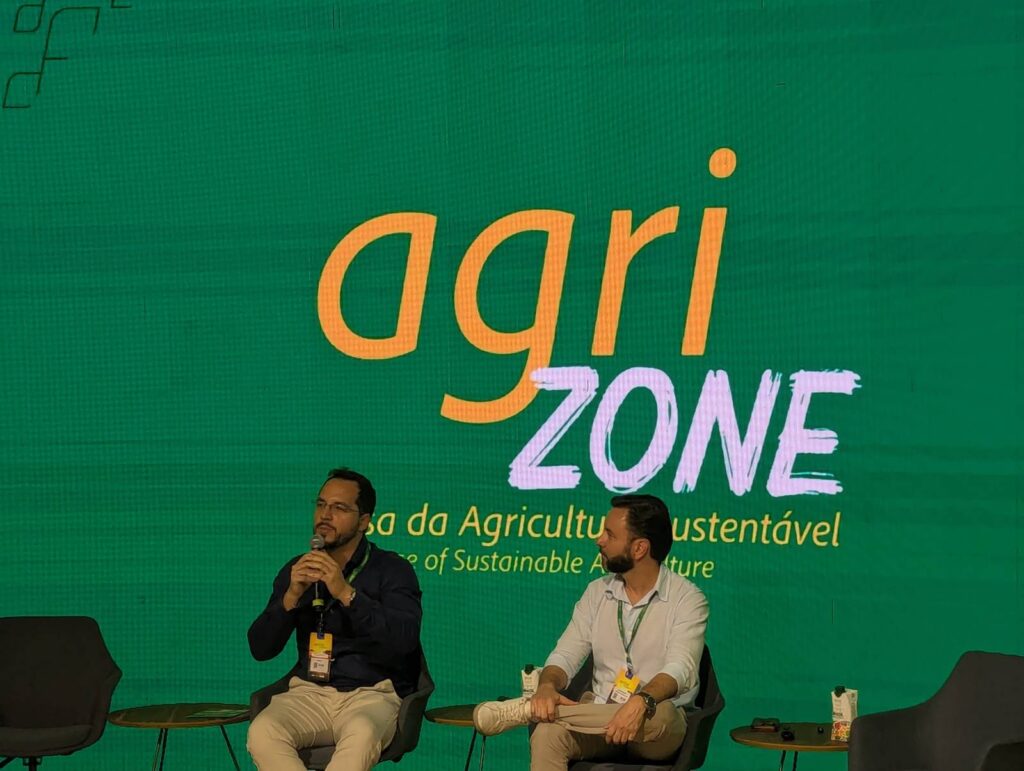Syngenta and other pesticide companies used the COP30 climate conference in Brazil to promote programmes to recover damaged pastureland that campaigners fear will drive increased use of toxic chemicals.
Trade groups hosted multiple events to promote a technique known as ‘degraded pasture recovery’, in which land that has been damaged by overgrazing or other forms of poor management is converted to grow soy, sugarcane, corn, or other crops.
Brazil says the approach will help reduce pressure on forests by opening up fresh tracts of arable land. The country has set a target to convert 40 million hectares of damaged pasture into production zones for food crops and biofuels over the next decade — an area almost twice the size of the UK.
But small-scale farmers and environmental groups warned that expanding intensive agriculture in the programme areas would lead to a surge in chemical use, which is already causing severe pollution in Brazil, the world’s largest pesticide market.
“In rural communities, especially peasant, Indigenous, quilombola, and riverine communities, the effects [of pesticides] are devastating,” Gerson Barbossa, a Brazilian grower and representative of small-holder farm union La Via Campesina, told DeSmog. “There is a clear attempt to hijack the climate debate to expand input markets.”
Pesticide use is global driver of biodiversity destruction, including bird and bee deaths, and Barbossa cited these and other impacts, including links to cancer and neurological problems.
Studies have linked pesticides used in expanding soy production — one of the crops commonly included in degraded pasture recovery programmes — to increases in childhood leukemia in Brazil.
Syngenta’s Plan
Swiss multinational Syngenta, the world’s largest pesticide company, was among the most vocal proponents of degraded pasture recovery at COP30 through its flagship Reverte programme, which the company says has so far enlisted 400 farms in Brazil.
Branding Reverte as its largest “sustainability initiative” worldwide, Syngenta aims to apply the programme to an area equivalent to the size of Jamaica by 2030 and in July announced plans to expand into Paraguay.
Under the initiative, Brazilian farmers can apply for low-interest loans from Itaú Unibanco, Brazil’s largest bank, in return for adopting a range of farming practices designed to convert pastureland, including the use of Syngenta’s digital technologies and pesticides. Farmers are supposed to refrain from clearing trees under the programme’s “zero deforestation” goal.
Itaú Unibanco said the programme could promote “more efficient and responsible” farming practices. Environmental campaigners and smallholder farmers at COP30, however, remained sceptical — warning that linking cheap finance to programmes run by the pesticide sector will give the industry leverage over farmers.
“There are plenty of ways to manage pests, weeds and diseases on a farm, but any advice from a pesticide company is going to propose using more pesticides,” said Devlin Kuyek from Grain, a non-profit that works with farmers and campaigners worldwide. “Credit is being used to expand markets for seed, pesticide and fertiliser companies and locking farmers into use of their products.”
Big Promises
Syngenta promoted its Reverte programme as a climate solution at multiple panels across official COP venues, including the Blue Zone where official negotiations took place.
“We’re increasing carbon in the soil, and we’re improving rural prosperity,” Gabriel Moura, Syngenta’s sustainability coordinator, told a November 13 panel in the COP30 Agrizone, an area dedicated to farming at the summit, which is co-sponsored by companies including pesticide maker Bayer.
While soils can capture significant amounts of carbon, studies have shown that pesticide use poses a major threat to organisms critical to healthy soil and soil carbon sequestration.
Speaking on a later panel alongside Itaú Unibanco about the Reverte programme on November 15, Claudia Veiga Jardim, senior sustainability manager for Syngenta, said that pesticide use was part of the solution. “The best yield can come from using inputs correctly,” she said.

In response to questions from DeSmog, a Syngenta spokesperson said that approved practices under the programme could include the use of fertilizers, crop rotation, no-till farming and “crop protection technologies” — an industry euphemism for pesticides.
“When using [our] company’s technologies, a unique protocol is created to restore the land and keep the soil healthy,” the spokesperson said. “The farmer makes the decisions — including which seeds, inputs, and farming practices to adopt.”
Eliseo Rusol Jr, a researcher from Philippines-based sustainable farming network the Farmer-Scientist Partnership for Development, or MASIPAG, said it was a “great irony” for Syngenta to position itself as a champion of sustainability.
“They are part of a very harmful system that accelerates climate crisis, because their type of ‘sustainable agriculture’ is still dependent on chemical inputs and harmful herbicides,” he said.
Nearly all chemical pesticides are made from fossil fuels.
Brazilian Approach
As the pesticide sector pushed to expand the market for its products at COP30, Brazil was also promoting its own Caminho Verde pasture recovery programme.
The government raised an estimated 30 billion reals ($5.6 billion) in an August auction to fund the recovery of 1.4 million hectares of degraded pastureland under the scheme.
The government says that projects must meet strict environmental standards, including soil recovery, and says they could allow the country to nearly double its food production area without further deforestation.
But some activists warn the programme — like its corporate-led cousins — could lead to further expansion of polluting agribusiness.
The government acknowledges that Caminho Verde is projected to increase agrochemical use, with Jose Carlos Polidoro, advisor to the Executive Secretariat of the Ministry of Agriculture telling a public hearing on domestic fertilizer production held in Brazil’s congress in October: “This programme could increase fertilizer demand by 10 million tonnes by 2035.”
Almost three-quarters of the areas analyzed in a previous Brazilian scheme to rehabilitate damaged pastures remained unchanged four years after receiving support, according to a 2024 study by the Climate Policy Initiative non-profit.
Additional reporting by Hazel Healy
The post Pesticide Industry ‘Hijacked’ Climate Stage at COP30, Campaigners Say appeared first on DeSmog.
This post has been syndicated from DeSmog, where it was published under this address.
